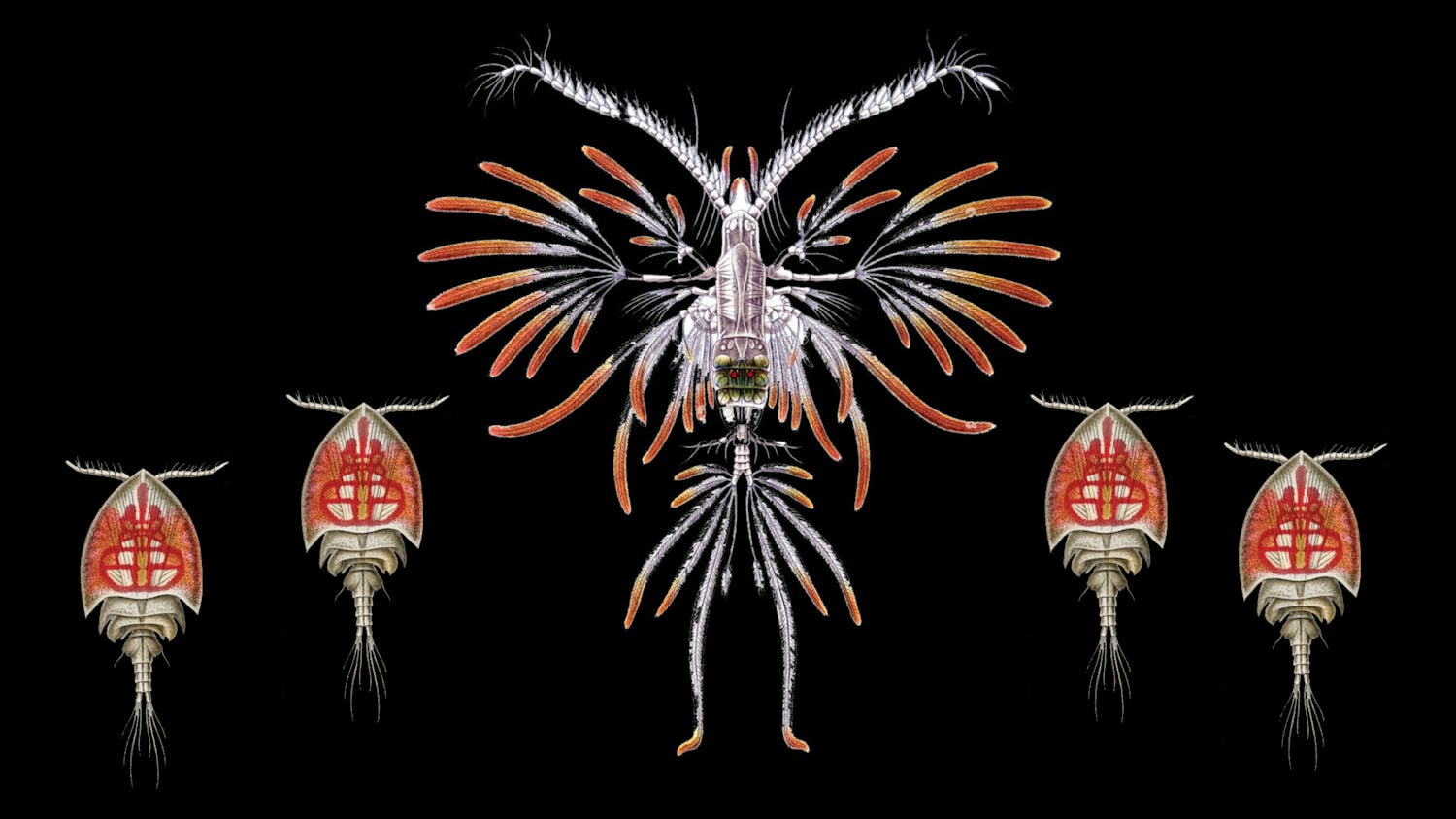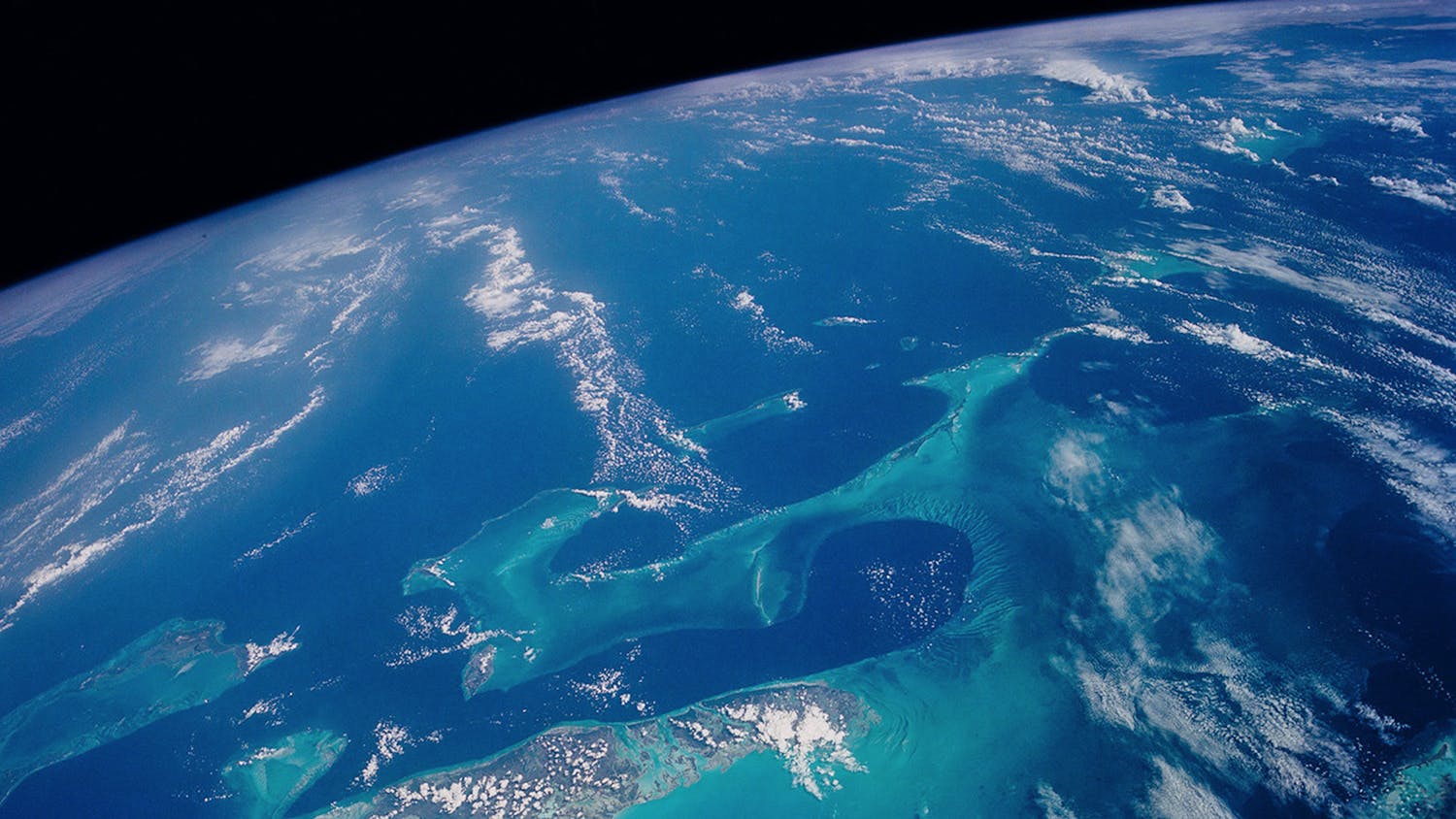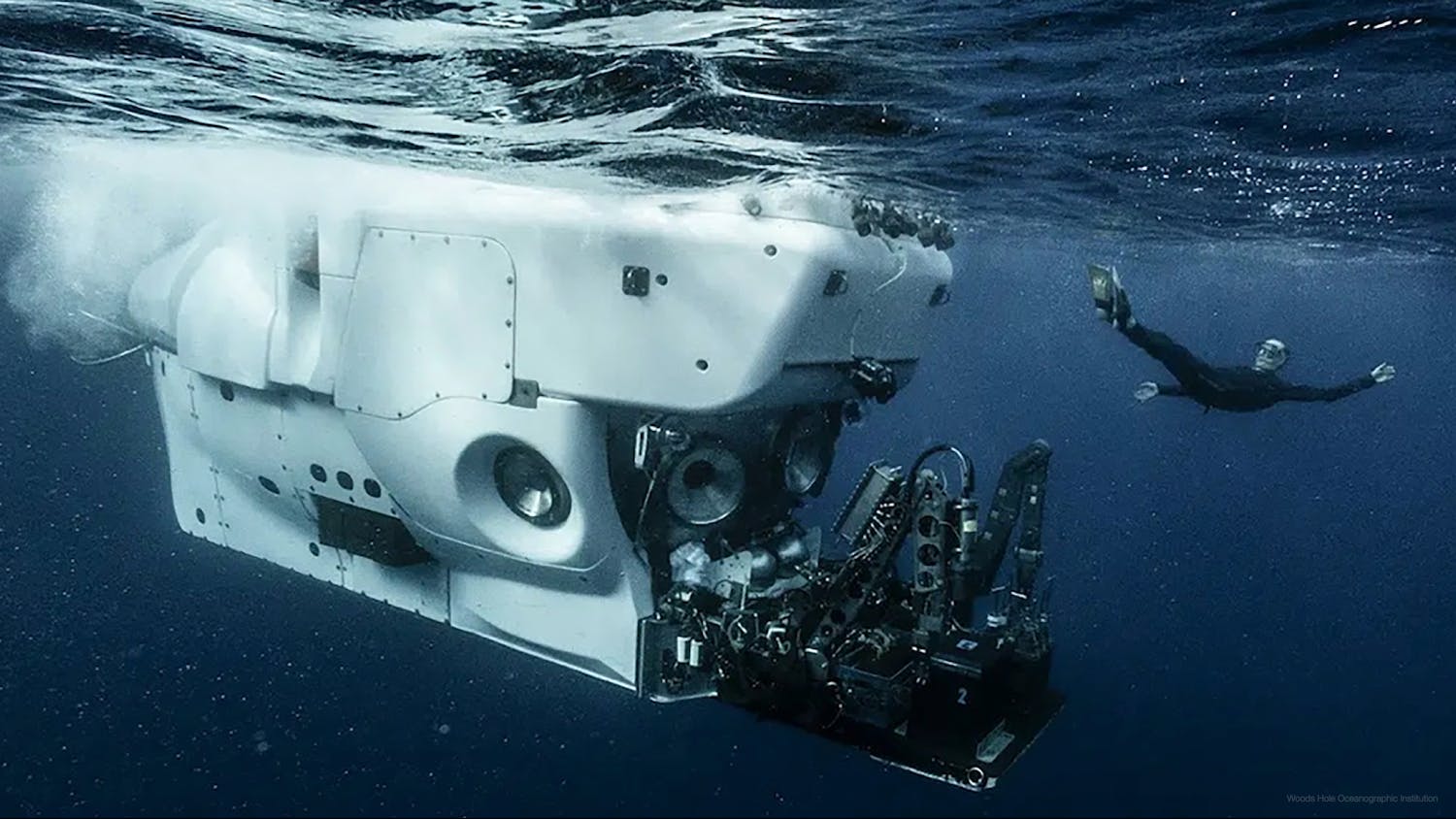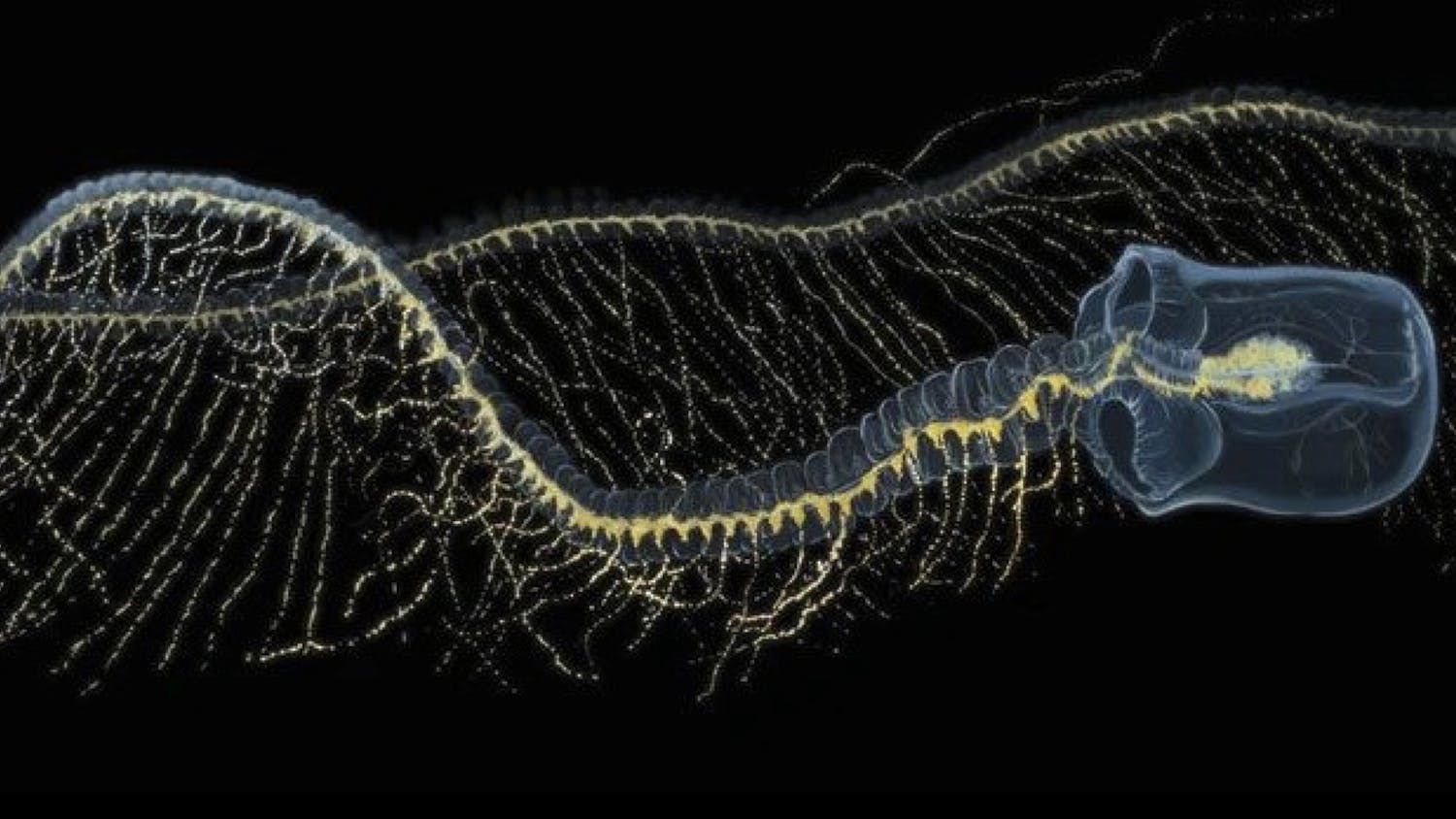This blog was originally written as a TEDxBoston talk by Richard Vevers, March 2023.
Is our view of the world fundamentally flawed?
Richard Vevers thinks so. In this fun and insightful talk Vevers reveals how our terrestrial view and beliefs about the world makes us subconsciously ignore the ocean and its importance.
He explains how this is undermining our ability to understand and solve ocean issues especially the biggest one of them all... climate change.
Climate Change, Education, Environment, Oceans Richard Vevers is an ocean conservationist best know for his leading role in the Netflix Film Chasing Coral and for inventing the camera that took Google Street View underwater.
This talk was given at a TEDx event using the TED conference format but independently organized by a local community.
From The Ocean Agency by Richard Vevers
How our terrestrial perspective undermines our ability to solve global issues like climate change
Our view of our world has changed dramatically through the ages.
We once believed that the world was flat — that we could fall right off the edge.
We once believed our world was at the center of the universe — that everything revolved around us.
Our beliefs about the world have improved over time, but not as much as you might imagine.
We still have a view of our world that is fundamentally flawed: We look at the world from a terrestrial perspective that makes us subconsciously ignore the ocean and its importance.
It’s as if the ocean is not part of our world at all.
To illustrate our terrestrial perspective, let’s start with a simple question: What’s the most common animal on the planet?
We once believed that the world was flat — that we could fall right off the edge.
We once believed our world was at the center of the universe — that everything revolved around us.
Our beliefs about the world have improved over time, but not as much as you might imagine.
We still have a view of our world that is fundamentally flawed: We look at the world from a terrestrial perspective that makes us subconsciously ignore the ocean and its importance.
It’s as if the ocean is not part of our world at all.
To illustrate our terrestrial perspective, let’s start with a simple question: What’s the most common animal on the planet?
We asked school teachers this question, but less than 5% got the answer right.
So take this Ernst Haeckel illustration as a clue...
So take this Ernst Haeckel illustration as a clue...

It’s a copepod.
There are a staggering 20 billion copepods in the world for every human.
And most of us haven’t even heard of them.
Here are two more questions: What’s the longest animal? It’s a siphonophore.
These creatures can swarm in the billions, and one was recently discovered that was about four times the length of a blue whale.
Now, what’s the most common form of communication? (Not one of the teachers got this question right…) It’s bioluminescence, which is not that surprising when you consider most animals live in the darkness of the deep ocean.
The reality is that there are so many facts about our world we think we know, but we don’t, because we look at it from a terrestrial perspective and ignore the ocean: the tallest mountain, deepest valley, oldest animal, largest plant… it’s a long list.
Sure, we occasionally think about animals that stick their heads above water or find themselves on our dinner plates.
But pretty much everything else about the ocean we tend to ignore.

The Bahamas from space, photo NASA
This lack of understanding matters, because the ocean couldn’t be more important.
It’s what makes life on Earth possible.
Its energy, currents and life have been proven to impact every aspect of our lives — from our security to our health and even our wealth.
It’s the driver of catastrophic events like hurricanes, famines, wars and disease outbreaks.
It is also the source of marvels of life that are key to our future.
It couldn’t be more influential in our lives.
But we don’t see any of this from our terrestrial perspective, so we ignore the ocean, not even trying to understand it.
We develop a shallow relationship with it that’s almost entirely based on the enjoyment and food we can get from it.
We don’t even see the point in educating our kids about the ocean.
Over 95% of countries don’t have ocean education in their curricula.
One billion kids are currently growing up without an ocean education, just like their parents and grandparents.
Think about how bizarre that is for a moment.
We don’t teach our kids about the one thing that’s essential to life on Earth.
By not teaching about the ocean, we reinforce the idea that the ocean isn’t important, and the belief becomes self-perpetuating.
It also helps instill a widespread fear of the ocean; a fear of the unknown.
By not teaching about the ocean, we reinforce the idea that the ocean isn’t important.
Now, I’m no different from everyone else.
I grew up loving the ocean — but without an ocean education — and I rarely thought about its importance.
It’s only recently that I’ve learned to look at our world from a different perspective and try to understand it better.
I’m fascinated by communication about the ocean but the one thing that always surprised me is just how difficult it is to engage people, even those who claim to love the ocean.
You have to go to extreme lengths to get public interest.
For the longest time, I really struggled to understand why ocean communication was so hard.
Then I had an experience that completely changed my view.
I went for a snorkel in the open ocean.
It was in a location way beyond sight of land, in water that was crystal-clear and a couple of miles deep, making it an incredible dark blue color.
When I jumped in, what I saw took my breath away.
It wasn’t a whale or shark — there wasn’t even a fish in sight.
It was something completely different.
It was the energy.
The magical rays of light were spotlighting microscopic life before disappearing into the darkness; the swell was interacting with the waves.
Everything was moving.
Absolutely nothing was still.
Having everything move and nothing be still is something we almost never experience in life.
The whole scene seemed full of energy.
It felt like I was seeing the ocean for the first time – I could sense its power, and I certainly felt my own vulnerability.
The experience reminded me a lot of something astronauts talk about: the Overview Effect.
It’s the profound experience you get when seeing the Earth from a new perspective.
So, I started calling my experience the Oceanview Effectand began trying to find other people who’ve had the same experience.
I found two groups: ocean scientists and offshore sailors.
Both head out into the open ocean and occasionally jump in.
Scientists and sailors alike lit up when asked about the Oceanview Effect and talked vividly about it.

Photo Woods Hole Oceanographic Institution
It was these conversations that inspired me to investigate the phenomenon more deeply.
I read a book called Sea People that was about Ancient Polynesian voyagers who described their view of the ocean.
Polynesians didn’t refer to the ocean as a body of water like we do.
Instead, they referred to it as energy.
They saw it as the energy of life, with the power to create and destroy.
They even described the ocean as an actual relative, which makes sense when you consider the water in our bodies was once in the ocean.
In fact, we’re about 60% ocean.
What I found most insightful, though, was that Polynesians described the ocean that was visible from shore very differently than the ocean beyond the horizon.
They called the ocean close to shore “dead” and the ocean beyond the reef and horizon “alive.” They weren’t referring to the lack of marine life in coastal waters — life was abundant there.
They were simply referring to the nature and energy of the ocean.
We tend to look at the ocean from the shore, and we almost never see its true nature.

So, what would happen if we accepted that we have a false perspective of our world and made a conscious effort to think about it from an ocean perspective, prioritize our understanding of the ocean, even — dare I say it — teach ocean education in schools?
For starters, we’d understand the issue of climate change far better.
There’s currently little awareness about even the basic concepts governing the ocean’s fundamental role in the issue.
The deep blue color of the ocean helps it absorb over 90% of the extra heat energy.
And it’s this energy that’s powering climate change impacts on land.
The ocean creates a delaying effect so we don’t experience the full impacts on land for about two decades.
This means the issue is about 20 years more advanced than most people realize.
We should all have this kind of basic understanding, and it should be driving our response.
Ocean awareness wouldn’t just help us understand the climate issue.
It would help us solve it.

Photo Woods Hole Oceanographic Institution
This is where it gets exciting.
Most people aren’t aware of simple, yet amazing concepts.
For example, carbon travels down in the ocean, not up.
Those copepods we mentioned earlier? They’re little carbon-capturing devices that eat carbon and excrete it to the ocean floor.
And there are 20 billion of them for every one of us.
We focus on building carbon-capturing machines on land, but we rarely think about the potential of protecting and nurturing our countless billions of copepods.
Siphonphones and their relatives, salps, are even better carbon-capturing devices.
They’re voracious predators that can clone themselves.
Some can double in size every 10 hours.
That’s right —nature has already invented cloning carbon-capturing devices! And they’re already removing about the same amount of carbon as the civil aviation industry emits.
Imagine if we understood how to safely leverage that process.
If we better supported ocean science, we could get these answers.
Ocean awareness would also make us notice just how bizarre some of our actions seem to be: We catch fish to feed to livestock.
Tens of millions of tons of fish.
We transform a fabulous climate solution into a climate problem – even subsiding the process.
We trawl the seafloor, where carbon is safely being stored, in search of seafood.
Again transforming a fabulous climate solution into a climate problem.
To put it bluntly, we’re making elementary mistakes because we didn’t get taught about the ocean in elementary school.

Fortunately, our view of the ocean, and our understanding of it, is going to change.
I think this is inevitable.
Our need to solve climate change is forcing us to finally consider the ocean’s role and its importance.
The only question is how quickly this will happen — whether we learn fast enough to help solve climate change.
And that’s where you come in.
You can act on this idea and be one of the first to change your perspective of our world and learn about the ocean.
It’s not difficult.
You can even help others do the same by spreading the idea.
If you do, I bet you’ll see that there is a lot more we can be doing to solve climate change, and it will make you feel a lot more optimistic about the future.
Links :
No comments:
Post a Comment